QuestionLast year my mother adopted 3 feral kittens (2 brothers and their sister) They have become fully indoor cats. There is a large feral cat population in the neighborhood, and I was concerned about them catching contagious diseases.
Starting early this year, we took them in 1 at a time to be fixed. After the first cat was fixed, we found a worm in vomit (no idea which cat) so had the vet identify it and give us a medication to treat all 3 cats.
The problem is one of the boys was at that point very hard to catch, and still takes a day of planning to get him close for long enough to grab. So he did not receive full doses of dewormer.
Fast forward 3 months, everything is fine, and at the beginning of April we were able to catch him and have him fixed. Like the other 2 cats he actually initially LOST weight after the surgery... and continued to get thinner.
He is now rail thin, although according to the vet he gained weight. He also scratches a lot at his front half, and is losing fur around his neck.
He constantly begs food but is quite picky about what he will eat.
We did take him to the vet, who said he has psychogenic alopecia - without performing a single test. I'm not to keen on going back to that vet.
I'm thinking food allergies or worms. He was given all recommended vaccines at the time of his neuter. He is lively and energetic, but I worry if he continues to lose weight that will change.
I would like to try a home remedy (otc dewormer, hypoallergenic food) before going back to that vet, because I really don't have much faith in him at all after his initial diagnosis was "anxiety" without performing a single test.
What would your first (and second) idea be on possible causes of combined weight loss and hair loss?
AnswerHi Amanda,
My first ideas would be diseases that tend to affect young cats most often, such as the feline leukemia virus, feline AIDS, and feline infectious peritonitis. These are infectious diseases that take advantage of a young cat's immature immune system. Most victims are younger than a couple years old when they become infected. Although the diseases are very separate, they can all cause similar symptoms - body wasting, finicky appetite and opportunistic secondary infections of the skin, digestive tract, mouth and eyes. If the kitties have not been tested for feline leukemia (FeLV) and feline AIDS (FIV), I would strongly recommend getting at least one of them back to the vet, at least for this test. It can be run as a combination test in the office and will give you the results im 10 minutes. I recommend that all cats have their status checked at least once. The feline infectious peritonitis (FIP) test is not as reliable and must be sent out, but if the kitty has many symptoms of the disease, this may need to be considered. Additional symptoms arise later in the disease and may include persistent fever, neurological conditions, anemia, seizures and blood cell deposits inside the eye. Some cats get fluid in the abdomen.
His scratching around the head may indicate allergies, but I'd be suspicious of possible ear mites. These are often the culprit when itchiness is concentrated in the upper body. Inflammation is spread as the cat scratches, and it can go beyond the ears, affecting the head, neck and shoulders, too. The best treatments will come from your vet and include Milbemite and Revolution. There are some over-the-counter treatments available, but they require repeated use.
Deworming the kitty won't hurt him (I recommend using Nemex or Panacur-C, both for dogs, rather than the stuff they put out for cats). I have seen worms cause belly troubles, and chronic diarrhea or refusal to eat will result in poor weight gain.
As for hypoallergenic food, again, the best stuff will come from your vet. But I have very good luck with grain-free foods. You may want to try one of the Earthborn foods. It's high in protein, too, to help him put on muscle mass.
Best of luck!
Jessica

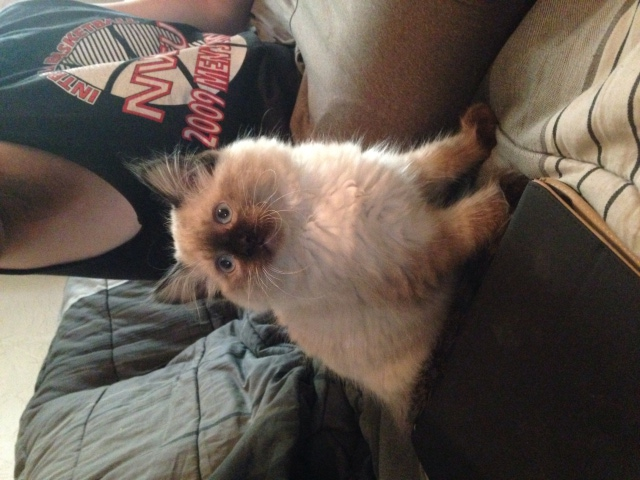 What kind of cat do I have? What should I breed her with?
Question
What kind?
The people we got my cat fro
What kind of cat do I have? What should I breed her with?
Question
What kind?
The people we got my cat fro
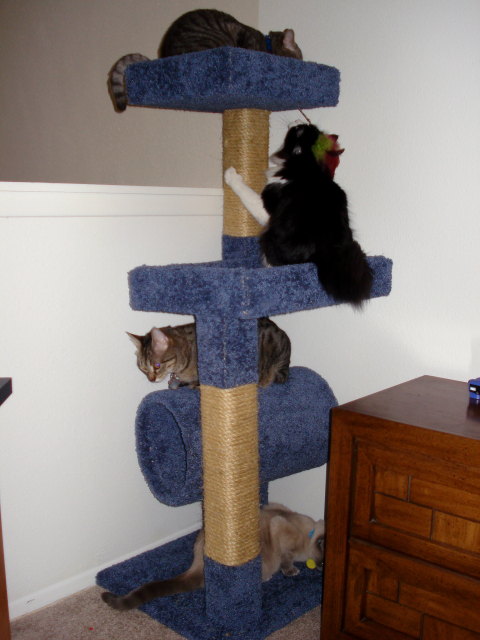 Cat and Dog Introductions
QuestionHi!
I recently acquired a tortie; although I wa
Cat and Dog Introductions
QuestionHi!
I recently acquired a tortie; although I wa
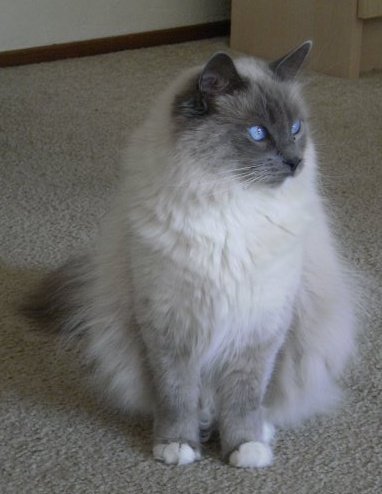 Please help
Questionmy cat
QUESTION: Hi,
I have a Ragdoll ca
Please help
Questionmy cat
QUESTION: Hi,
I have a Ragdoll ca
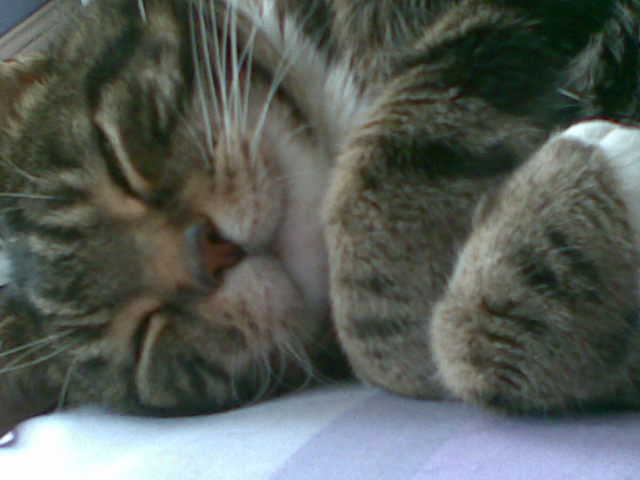 my cat!
QuestionQUESTION: I recently e-mailed a question to you
my cat!
QuestionQUESTION: I recently e-mailed a question to you
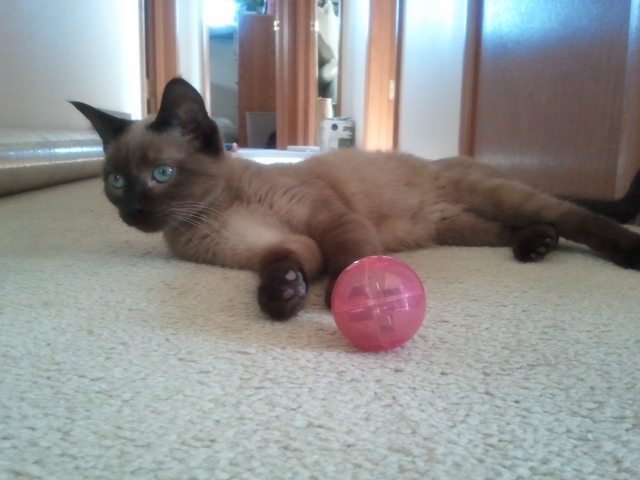 Cinnamon, mysterious Siamese
Question
Cinnamon - mysterious
Hi, I picked you
Cinnamon, mysterious Siamese
Question
Cinnamon - mysterious
Hi, I picked you